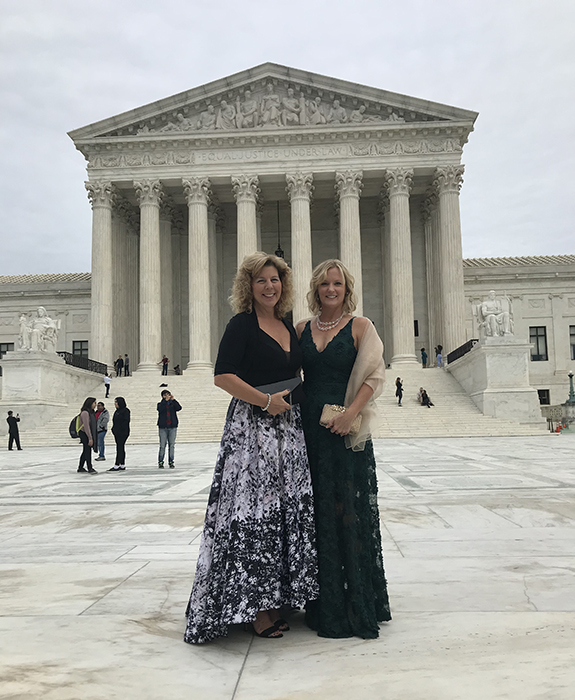by Laurie A. Saltzgiver, Esquire
In a recently issued decision, the PA Supreme Court was asked to consider whether the Public School Code “mandates that a School District provide free transportation to a student from two different residences where the student’s parents share physical custody of the student and both parents reside within the School District.” The case was before the Supreme Court on an appeal from the Commonwealth Court. The Commonwealth Court previously held that the School District was required to provide transportation to both parents’ residences. Watts v. Manheim Township School District, 2015 WL 5033184. (2015)
The parties in Watts shared legal and physical custody of their child on an alternating weekly basis pursuant to a Court Order. Both parties resided within the School District where the child attended school. At one point the school permitted the child to have a bus stop at both Mother’s and Father’s residences. In 2012, the School District changed their policy and notified Father that the child could only have one bus stop and that it would be Mother’s residence, as she was the child’s default address. Watts at page 2.
Thereafter, Father started an action and requested injunctive relief to require the School District to provide transportation to both parents’ residences. In support of his claim, Father cited the portion of the School Code which requires a School District to provide free transportation for any “resident pupil”. Father argued that the child was a “resident pupil” of two homes and that transportation must be provided to both homes.
The School District argued in response that a student may only have one residence for purposes of the School Code. The Trial Court found for Father, and limited their decision to the facts of the case and claimed it to be only applicable where: “(l) both parents live in the same School District (2) the student is subject to an equally-split, shared legal and physical custody agreement and (3) a school bus already serves each residence and could accommodate the student without any further cost or adding an extra stop.” The School District appealed the Trial Court’s order to the Commonwealth Court. Watts at page 4.
The Commonwealth Court reviewed pertinent case law and determined that because a prior case had held that a student of separated parents who lived in two different School Districts was a “resident pupil” of both School Districts, likewise, a child could have two residences within the same School District. The Commonwealth Court determined that a student may have more than one residence for transportation purposes and the school must provide transportation to both residences. Watts at page 6.
The School District sought review by the Supreme Court and filed an appeal to address the issue of whether the Public School Code requires the School District to provide transportation services to a student to more than one location within the School District.
The School District initially argued that a student may not have more than one residence under the Code and therefore it properly limited child’s transportation to one parent’s residence only. Alternatively, the School District argued that even if a student may have more than one residence under the Code, the School District still has the discretion to limit a student’s transportation to only one of the residences. The School District further argued that it did not abuse its discretion because the changes to their transportation policy “help conserve and better allocate limited public funds.” The School District suggested that it was unreasonable and absurd to assert that the legislature intended the School District to bear the additional cost of providing additional transportation to some students “merely to accommodate their parents particular domestic circumstances.” Watts at page 10.
Since the facts of the case were not in dispute, the Supreme Court’s task was to interpret the relevant statutes. The Court reviewed the relevant portions of the Public School Code and determined as follows:
1. The School District owes a duty of transportation to the child as a “resident pupil.” The contested issue is whether this requires transportation to Father’s home, which is a second residence.
2. “The duty to transport the student is triggered by his status as a resident of the School District, and necessarily his residence within the school district.” The Court determined that when a School District provides free transportation, this duty to transport means “to and from” the students’ residence.
3. For enrollment purposes, a student in a shared physical custody arrangement may
have two residences.
4. The purpose behind the Transportation provisions of the School Code is “to facilitate student’s attendance.”
5. The parents in this case have a shared, alternating weekly custody arrangement, and accordingly the child has two residences.
“Under these circumstances, we conclude that the legislature and the Department of Education intended for the School District to provide transportation to both residences in order to further the goal of compulsory attendance.” Watts at page 20.
The Court in Watts specified that these requirements are based upon the School Code and the parties equally shared custody arrangement. Whether this applies to other custody arrangements is not made clear by the Watts case. It is also important to note that the School District’s budgetary concerns regarding transportation were also not considered in this case, because the language within the School Code does not provide for those considerations.

